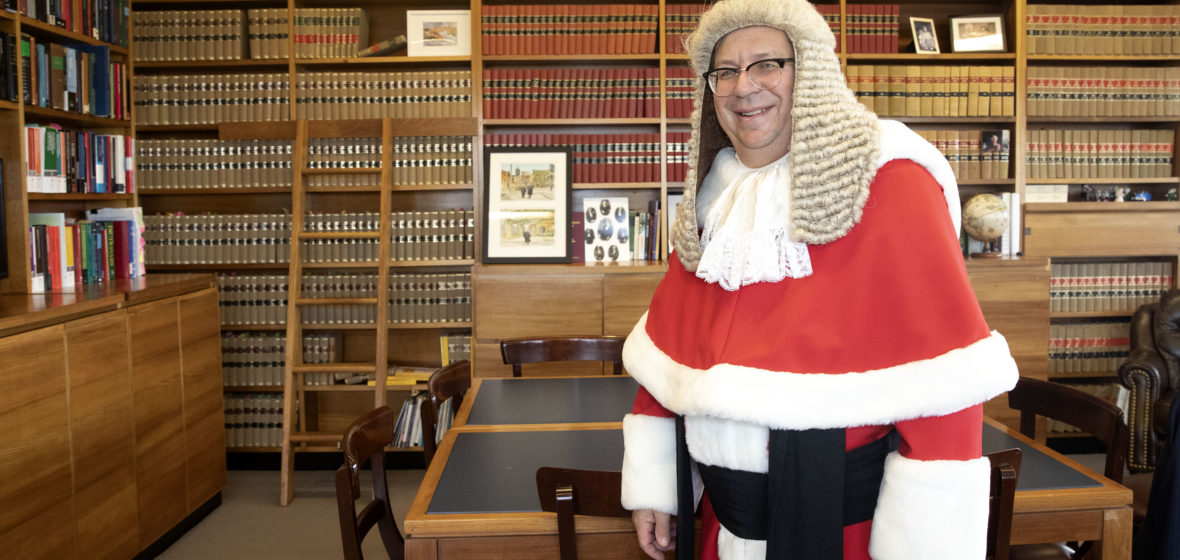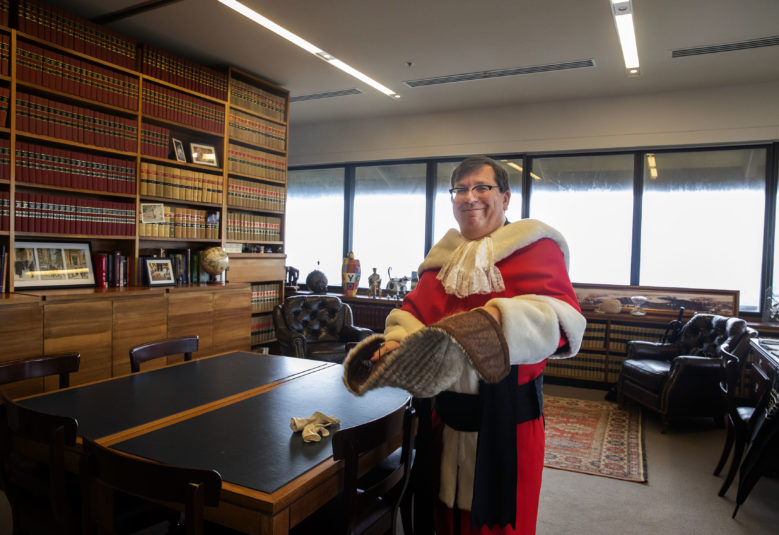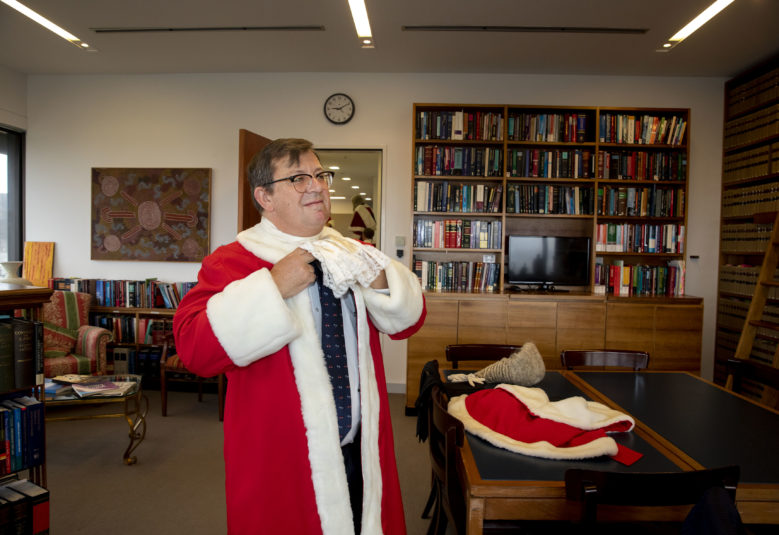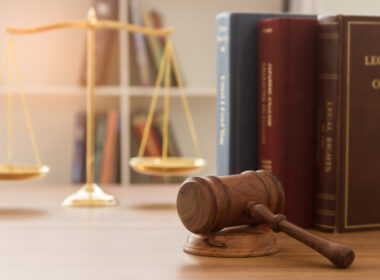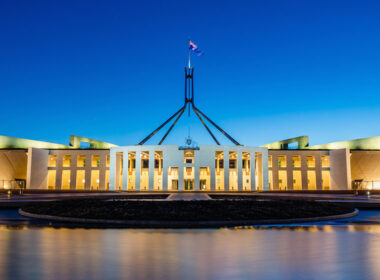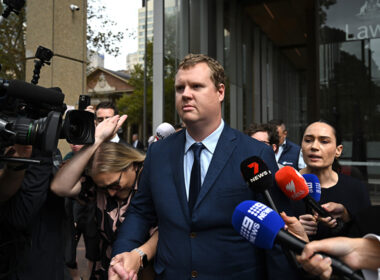Torrential rain, floods and gridlocked Sydney traffic would not dampen the mood that saw Chief Justice Andrew Bell sworn in to lead the NSW Supreme Court bench on Monday morning.
The state’s 18th Chief Justice took his place on the bench in front of a packed Banco Court seating 250 out of a possible 290 – a bigger turnout than NSW courts have seen for the past two years amid the pandemic.
His predecessor, Chief Justice Tom Bathurst, moved out of chambers on Friday but was among the first arrivals in court on his first Monday of retirement from the bench. The NSW Governor, Attorney General, three former Chief Justices, and the Presidents of the Bar Association and Law Society of NSW also helped fill seats.
The in-person event was described by attendees as celebratory and upbeat – a refreshing contrast to the past two years of empty court rooms and live-streamed hearings, and a trend that his Honour hoped would continue.
“My strong hope is that 2022 is the year which sees the reversal of the unintended but insidious depersonalisation of the legal profession brought about as a result of COVID,” the Chief Justice said.
“That is not to criticise the legitimate and responsible public health measures that were imposed … But it is to observe that, whilst the remote practice of law may be possible, it is far from desirable. The administration of justice is best served in open court for reasons which are profoundly important.”
His Honour held the seat of President of the NSW Court of Appeal for three years before being appointed Chief Justice in February. He previously had a prodigious quarter-century career as a barrister, taking silk in 2006. Early in his legal career he spent two consecutive terms as a judge’s associate including to the then-Chief Justice of Australia Sir Anthony Mason.
NSW Attorney General Mark Speakman said those who knew Chief Justice Bell tended to be struck by his “extraordinary intellect, of extraordinary work ethic, of great empathy, with a special penchant for bringing people together and with a great sense of humour”.
President of the Law Society of NSW Joanne van der Plaat paid tribute to Chief Justice Bell’s impressive intellect and work ethic, but said he was best known for his “interpersonal skills, boundless energy and, in the words of one of [his] colleagues at the bench, being ‘intensely social.’”
“Your Honour is a prodigiously hard worker – but never a dour one,” she said.
When he was chairman of the well-known Sydney barristers’ chambers at Eleven Wentworth, then-leading silk Bell had been nicknamed the “Chairman of fun”. A barrister who attended St Paul’s College with the Chief Justice told LSJ he was also “not a bad leg spin bowler” and an “excellent after dinner speaker”.
As President of the Court of Appeal, Chief Justice Bell had even established a “Court of Appeal barbeque”, which Plaat described as something akin to the “democracy sausage”.
“Although ‘Rule of Law sausage’ doesn’t have quite the same ring to it,” she chuckled.
The Chief Justice told LSJ after the ceremony that he was most looking forward to “reviving the personalisation” of court processes as in-person hearings began to resume while Omicron subsided, as well as planning the Supreme Court’s bicentenary celebrations in two years’ time.
He thanked his colleagues, former Chief Justices, and his family before sending off the audience with a taste of trademark self-deprecating humour.
“I do hope that, in the discharge of the office, I will exceed the assessment of a high school teacher of mine who wrote on one of my school reports: ‘Results quite good but the obvious tends to elude him,’” he said.
“And so, to work. The Court will now adjourn.”

